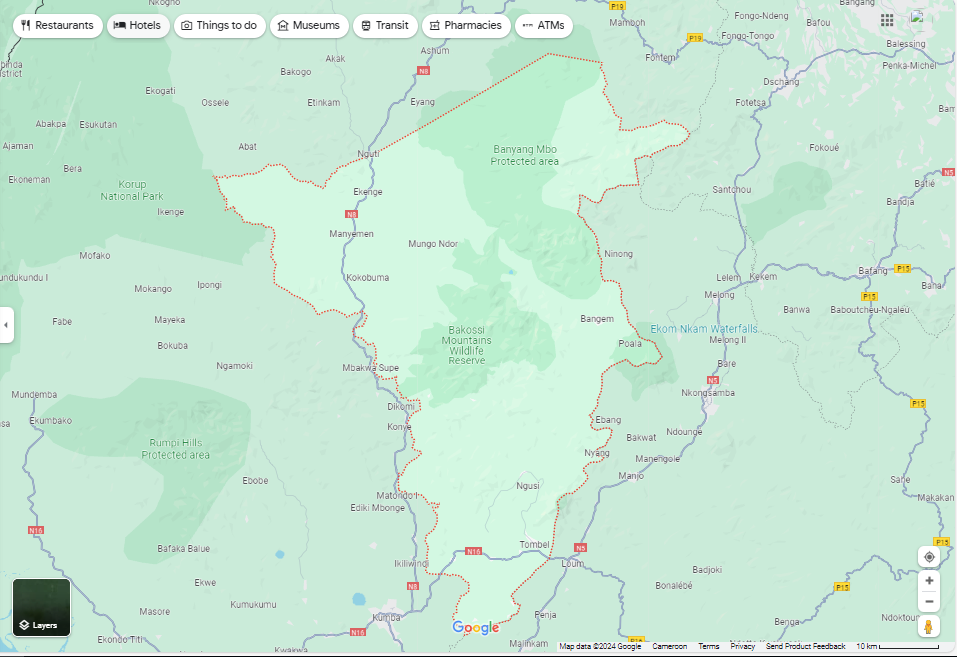Bakossi People
The Bakossi people, a Bantu ethnic group, inhabit the slopes of Mount Mwanenguba and Mount Kupe within Cameroon’s Bakossi Mountains. With a population around 200,000, they primarily practice subsistence farming, alongside coffee and cocoa cultivation.
Traditions and Lineage
Legend has it that the Bakossi descended from the legendary hunter Ngoe and his wife Sumediang. They had a large family and survived a great flood by building an ark, which eventually rested between the twin lakes of Mwanenguba. The Bakossi clans trace their lineage back to this family.
Linguistic and Cultural Connections
The Bakossi are linguistically and culturally connected to various regional groups, such as the Bafaw and Bakundu, and speak Akose, a Bantu language enriched with English, French, and Douala loanwords.
Environment and Agriculture
The Bakossi lands, rich in biodiversity, support crops like coco yam, cassava, and corn, with coffee and cocoa as cash crops. Unique dietary items include Hairy Frog males, believed to aid fertility.
Conservation Efforts
In 1956, the Bakossi Forest Reserve was established, later becoming a protected area with a ban on logging. Despite improvements in forest management, challenges remain in integrating local communities and environmental education.
Spiritual Beliefs
The Bakossi’s spiritual system includes jujus, mystical entities associated with secret societies and magical powers. Mount Kupe holds a special place in their beliefs, associated with the Nyongo society and tales of invisible plantations worked by enslaved spirits.
Historical Context
The Bakossi have a history of independence, engagement in trade, and experiences under colonial rule. Post-independence, they faced tensions with the Bamileke people and the repercussions of political unrest.
This summary captures the essence of the Bakossi people’s history, culture, and environment, reflecting their rich heritage and the challenges they’ve faced over time.
